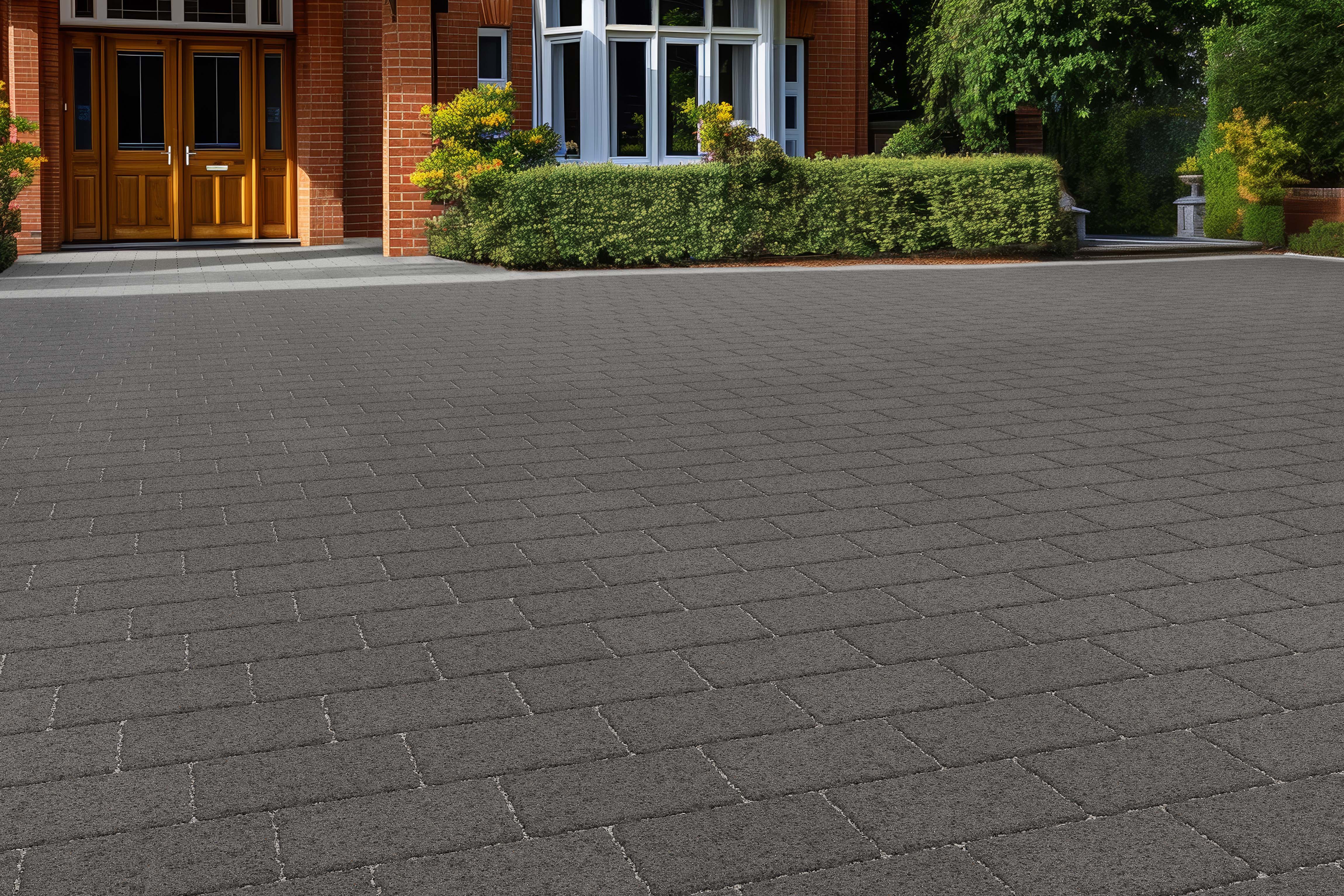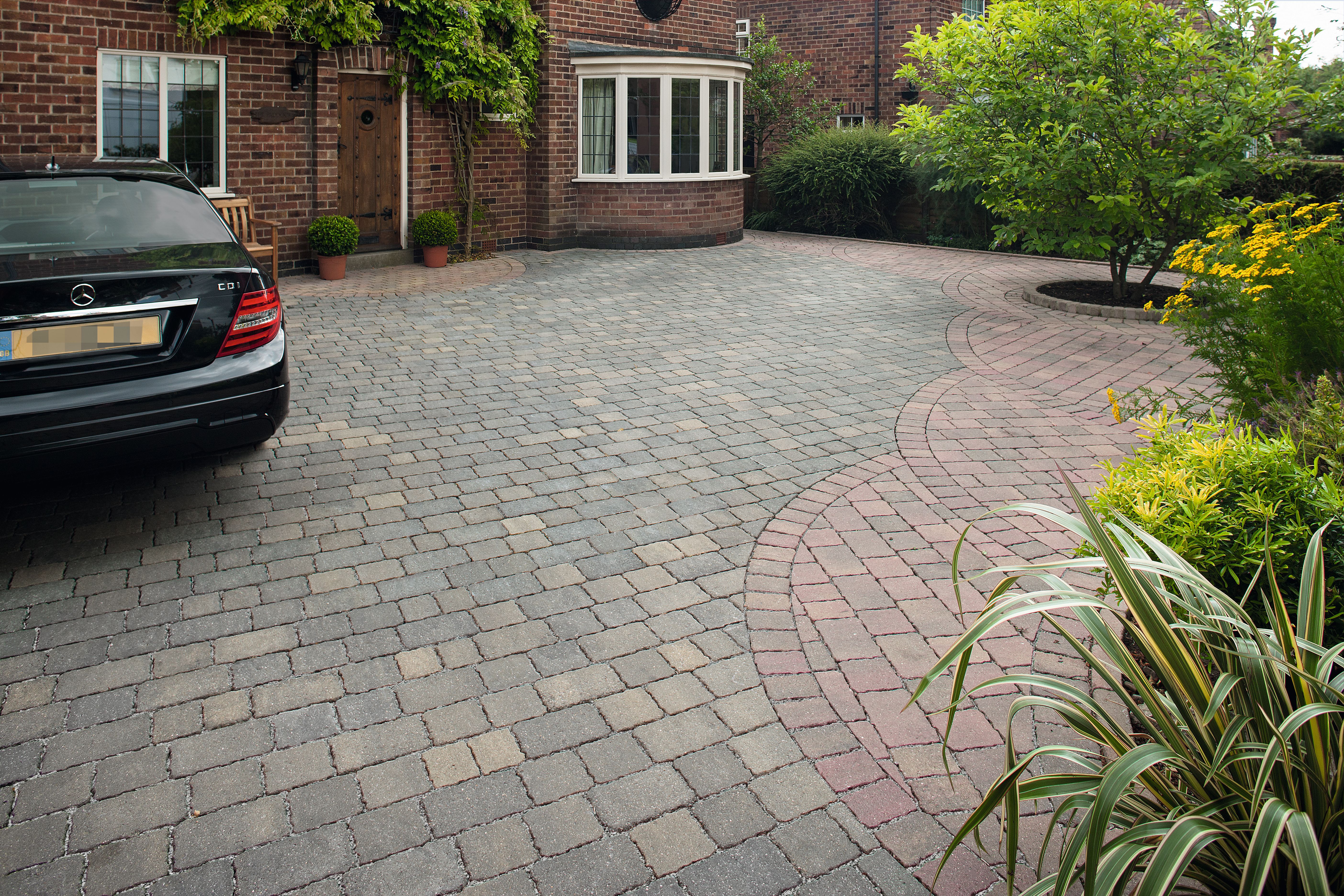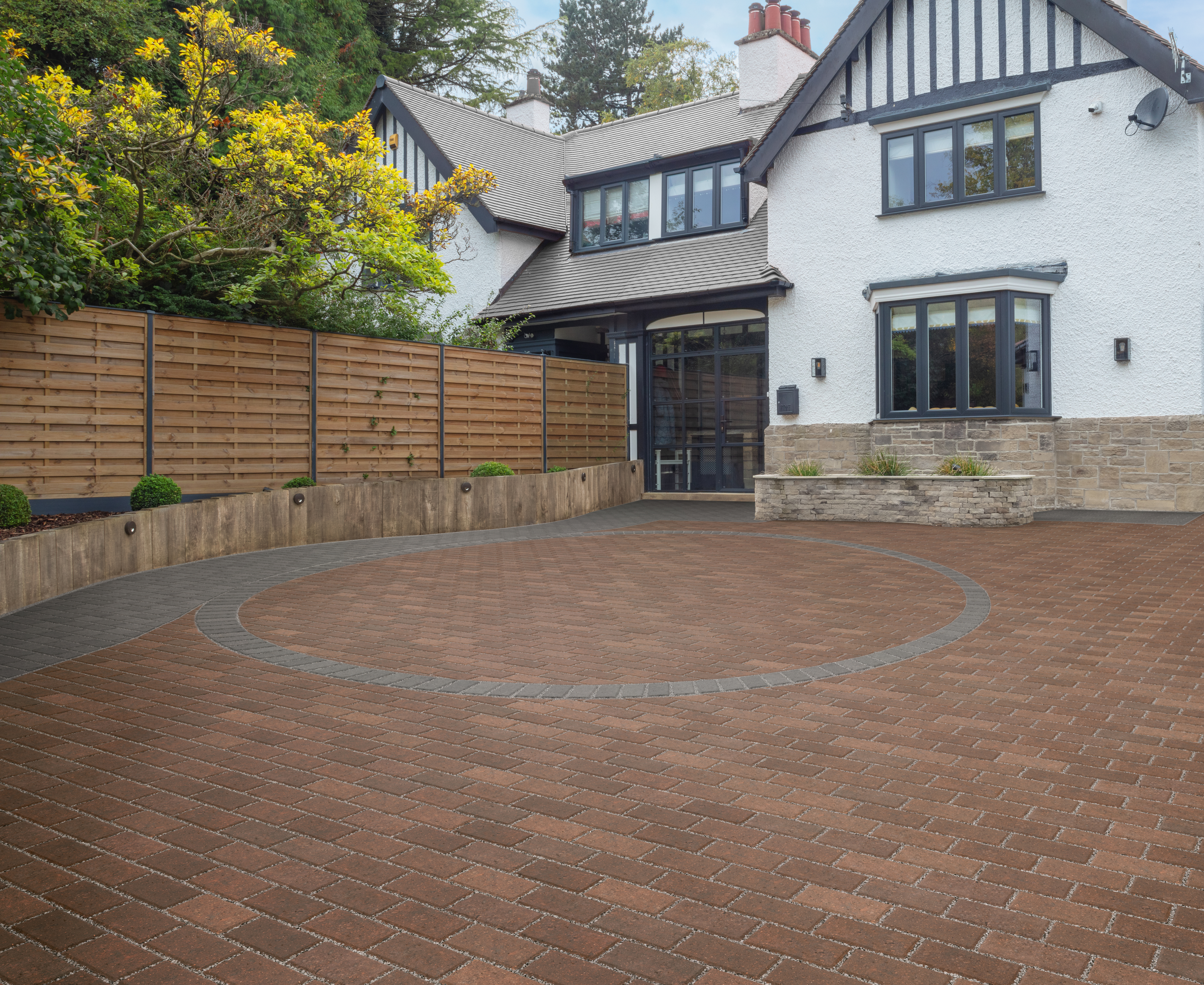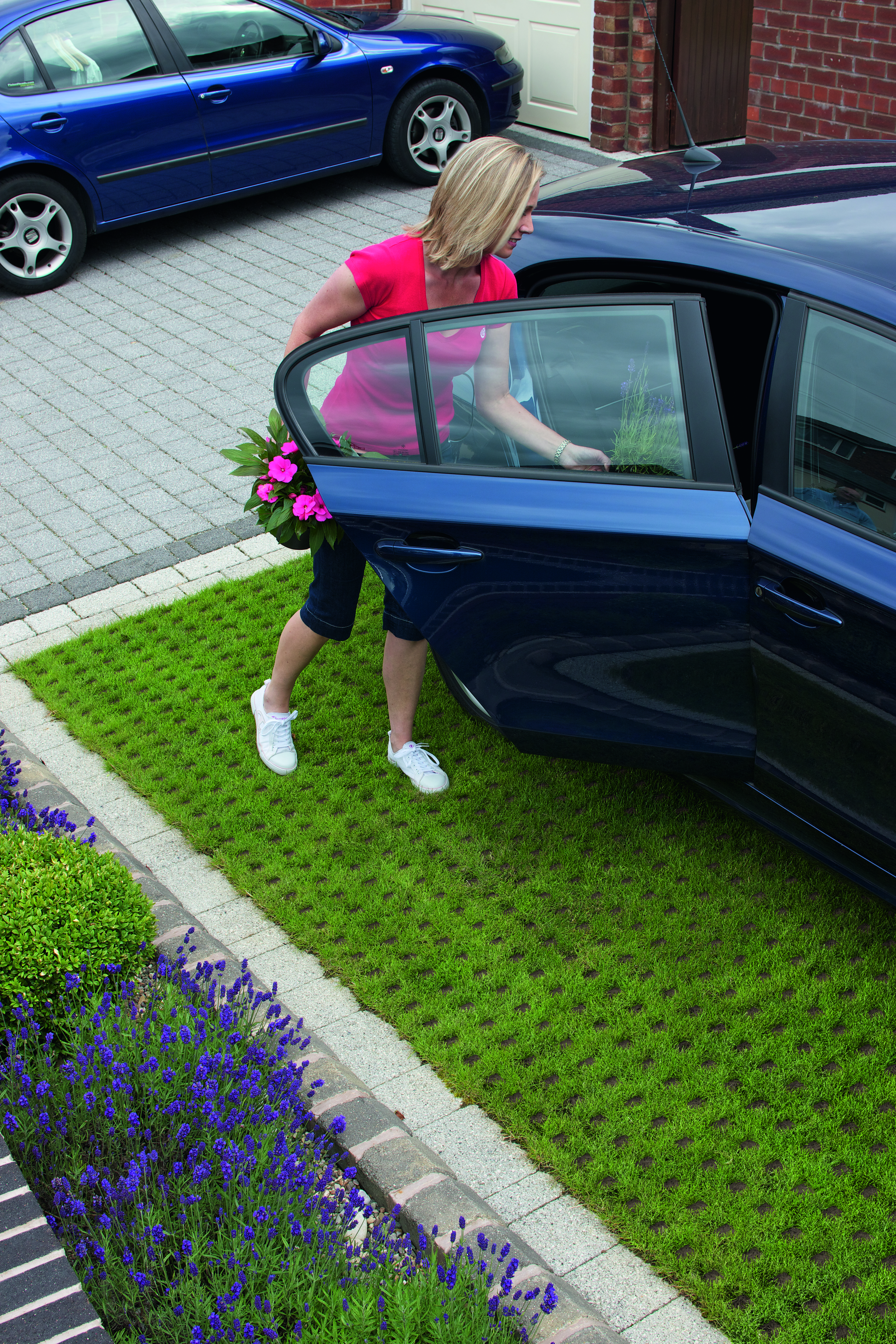Blog
What is permeable paving?
Permeable paving is a type of hard landscaping that allows water to pass through its surface, filtering into the ground below. Unlike traditional paving, which can lead to water pooling and run-off when no proper drainage is applied, permeable paving is designed to manage water and prevent flooding and waterlogging.
Permeable paving is made from materials with gaps or spaces between them, allowing water to flow through. These materials can range from permeable concrete to more decorative options like resin-bound gravel and specially designed-permeable pavers.
Where is permeable paving used?
Permeable paving is versatile, meaning it can be used in various settings around your property. Here are a few of the places which can benefit from permeable paving solutions:
- Driveways: One of the most popular uses for permeable paving is in driveways. It provides a durable surface that can handle the weight of vehicles whilst also managing rainwater effectively.
- Patios and garden paths: Permeable paving is also an excellent choice for patios and garden paths, offering practical water management, and thanks to the designs availabl and aesthetic appeal that can complement your property.
- Parking areas: Permeable paving is ideal for homes with larger parking areas, preventing water build-up and ensuring your parking space remains safe and functional year-round.
- Front gardens: Many homeowners now opt for permeable paving in their front gardens, especially in areas where planning regulations encourage or require sustainable drainage solutions.
What are the different types of permeable paving?
Permeable paving can be made from a variety of materials, each of which offers some key benefits. Different materials are better suited to different uses. Here are some common options and their advantages:
1. Permeable block paving
Permeable block paving is one of the most popular choices for domestic projects. It looks similar to traditional block paving but is designed with wider joints filled with a permeable material like aggregates or a special jointing compound. Their unique design allows water to drain through the gaps between the blocks, preventing surface water build-up. The advantages of permeable block paving are as follows:
- Aesthetically similar to traditional block paving
- Available in many colours and finishes to suit any style
- Excellent water drainage capabilities
- Durable and long-lasting
- 100% recyclable
2. Porous asphalt
Porous asphalt is often used for driveways and larger areas where high water permeability is needed. It’s made from a special mix of asphalt that includes larger aggregates, creating voids that allow water to pass through. Here are some advantages of porous asphalt:
- Cost-effective for large areas
- Excellent water drainage capabilities
- Low maintenance and long-lasting
3. Permeable resin-bound gravel
Resin-bound gravel is a decorative and functional option that’s become increasingly popular recently. It is created by mixing aggregate stones with a clear resin and then laying this mixture onto a prepared surface. The result is a smooth, permeable surface that allows water to drain through the gaps between the stones. Some advantages of permeable resin-bound gravel include:
- Visually appealing and available in a range of colours and textures
- Smooth, accessible surface ideal for walking and driving
- Low maintenance and weed resistance
4. Grass pavers
Grass pavers, or grid pavers, are a green solution that combines hard paving with grass. These pavers are made from plastic or concrete grids filled with soil and grass, providing a stable surface for light traffic and allowing water to drain. Grass pavers are:
- An eco-friendly solution
- Blends seamlessly with green spaces for a natural look
- Supports the growth of grass, contributing to local biodiversity
What materials are permeable?
It’s important to understand the permeability of different options when deciding which material to use for your project. Here, we’ll explore some common choices and questions, explaining whether they are permeable.
Is tarmac permeable?
Traditional tarmac is not permeable; it creates a solid, impermeable surface that can lead to water pooling and run-off.
Is block paving permeable?
Not all block paving is permeable, but specific designs, such as Marshalls' Driveline Priora, are engineered to be permeable. These blocks are laid with gaps filled with permeable jointing materials, allowing water to drain through the surface.
Is sandstone permeable?
Sandstone is a naturally porous material, meaning it can absorb some water. However, when used in paving, it is not typically considered fully permeable, as the gaps between the stones are often filled with mortar to make for a sturdy install, which prevents water from passing through.
Is concrete permeable?
Standard concrete paving is impermeable, meaning it does not allow water to pass through. However, permeable concrete, also known as pervious or porous concrete, is designed with larger aggregates and less sand, creating voids that allow water to seep through.
Is MOT Type 1 permeable?
MOT Type 1, a crushed aggregate material commonly used as a sub-base in driveways, is not permeable. It compacts to form a solid layer that does not allow water to pass through, making it more suitable for traditional, impermeable paving systems.
Are gravel driveways permeable?
Yes, gravel driveways are naturally permeable, allowing water to drain through the spaces between the stones. This makes gravel an affordable and effective option for a permeable driveway.
Are bricks permeable?
Standard bricks are not permeable. However, permeable paving systems can incorporate bricks with wider joints or gaps filled with permeable material, allowing water to drain through the surface.
Is slate permeable?
Slate is a dense, non-porous material, so it is not considered permeable. However, when used in paving, slate creates an impermeable surface that requires proper drainage solutions to manage water runoff.
What are the benefits of using permeable paving?
There are numerous benefits to using permeable paving in your landscaping projects. Here’s why you should consider it:
1. Improved drainage and flood prevention
Permeable paving’s main advantage is its ability to manage water more effectively than traditional paving. Allowing water to soak through the surface reduces the risk of flooding and waterlogging in your garden or driveway. This is particularly important in areas prone to heavy rainfall or with existing drainage issues.
2. Environmental benefits
Permeable paving helps to reduce the amount of pollutants working their way into local water sources. Filtering water through the ground naturally cleanses it, contributing to healthier local ecosystems. For more tips on creating an environmentally responsible space, read our guide to creating a wildlife-friendly garden.
3. Compliance with planning regulations
In many areas, local councils have introduced planning regulations that require new driveways and paved areas to be permeable. This is part of a broader effort to manage urban drainage and reduce flooding risks. By choosing permeable paving, you can ensure that your project complies with these regulations, potentially avoiding costly planning delays or fines.
4. Low maintenance
Permeable paving systems are generally low maintenance, requiring less upkeep than traditional paving. Because they are designed to allow water to drain away, you’re less likely to experience issues with standing water, moss, or algae. This can reduce the need for regular cleaning and maintenance, saving you time and money in the long term.
5. Enhanced aesthetic appeal
With a wide variety of styles, colours, and materials available, permeable paving can enhance the appearance of your home. Whether you prefer the classic look of aged cobblestone or a more natural aesthetic, there’s a permeable solution for all types of gardens.
6. Long-lasting durability
Permeable paving is designed to be durable and long-lasting, even in areas with heavy foot/vehicle traffic. Materials like resin-bound gravel and permeable blocks are resistant to cracking and can withstand the freeze-thaw cycles of the British climate, making them a smart investment for any home.
Find out if permeable paving is right for your space, read our informational guide is permeable paving right for my driveway? Or contact a Marshalls expert for further, tailored guidance.
Choose Marshalls for permeable paving
With over 130 years of experience providing hard landscaping solutions, Marshalls is the go-to expert for supplying your project. Our wide range of permeable paving options are durable, practical and stylish, so you can be sure your investment will look and function great for years to come.
Here are a few of our favourite permeable paving solutions:
1. Modal X Priora
Drivesett Argent Priora is a modern, stylish, permeable paving option with excellent drainage capabilities. It features a smooth, granite-look surface and is available in a range of colours.

2. Drivesett Tegula Priora
Drivesett Tegula Priora offers a more traditional, rustic appearance while still providing the benefits of a permeable paving system. With its aged cobblestone texture, this option is ideal for a classic driveway.

3. Driveline Priora
Driveline Priora is a versatile and cost-effective permeable paving option. It comes in six colourways, allowing for customisation to suit different home styles. Driveline Priora is a durable option for busy driveways.

4. Grassguard Permeable Paving
Grassguard is an eco-friendly permeable paving solution that allows grass to grow through the paving itself. This option is perfect for driveways, parking areas, or pathways where you want to maintain a natural, green appearance and support biodiversity while benefiting from a hard surface's strength and stability.

FAQs about permeable paving
Is permeable paving expensive?
Due to the materials used and installation methods required, permeable paving can sometimes be slightly more expensive than traditional paving. However, the long-term benefits, including reduced maintenance and repairs, make it a more cost-effective option.
What areas of my garden is permeable paving suitable for?
Permeable paving is a versatile option for your garden; it can be used for driveways, patios, garden paths, and parking areas. It is particularly suitable for areas where drainage and flooding are a concern.
What are the disadvantages of permeable paving?
Permeable paving is an excellent choice for many reasons, but it's worth considering its drawbacks before committing to a permeable material.
Permeable pavement can become clogged with debris, dust, or grit, which can affect its ability to drain water. It can initially cost more than traditional materials and will require a knowledgeable builder or contractor to install it. Finally, permeable paving can collapse under constant pressure, so it isn’t recommended for high-traffic roads. However, it is unlikely to be damaged this way in most domestic settings.
How do I maintain permeable paving?
Permeable paving is generally easy to maintain. Regularly sweeping and occasionally pressure washing to remove dust and debris should be sufficient to keep your paving in good condition. Additionally, check for blockages and clear them if necessary to ensure water can pass through.
How long does permeable paving last?
Permeable paving is a long-lasting, durable landscaping solution. Well-maintained installations can last over 30 years.










